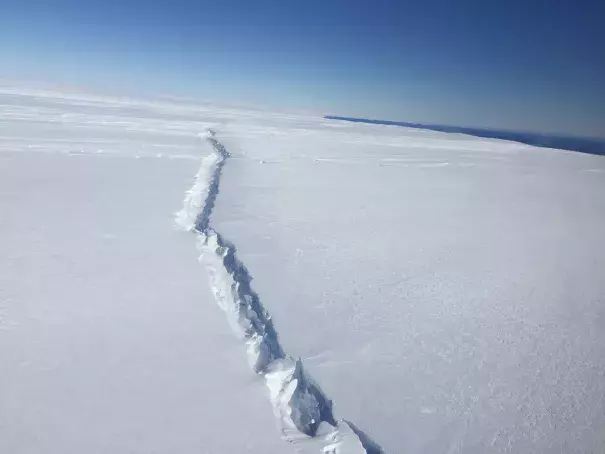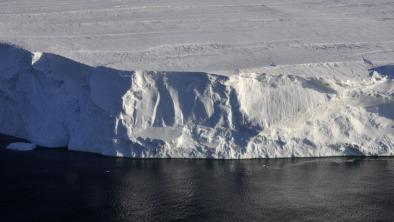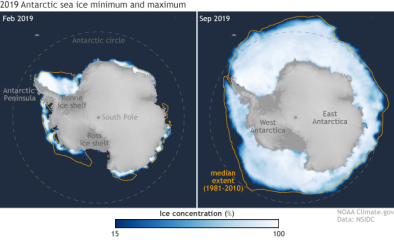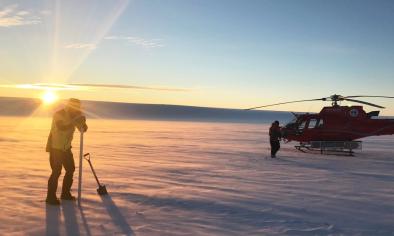Antarctic Ice Shelf Could Collapse Within 100 Years, Study Finds

A massive iceberg splintered off one of West Antarctica's largest glaciers last year, and now, scientists have discovered the "troubling" reason why, they said.
In 2015, an iceberg measuring almost 225 square miles (580 square kilometers) broke off from the Pine Island Glacier, which forms part of the ice shelf that bounds the West Antarctic Ice Sheet. Recently, while reviewing satellite images taken before the giant iceberg broke off, researchers found evidence of a rift at the very base of the ice shelf. This suggests that the sprawling glacier broke apart from the inside out, the new study said.
The base rift was located nearly 20 miles (30 km) inland, and could first be seen in satellite images from 2013, the researchers said. Looking at satellite images taken before the 2015 fracture, the scientists discovered that the rift spread upward for two years before breaking through the ice surface. The iceberg was then set adrift over 12 days in late July and early August 2015, the scientists added.
...
The way the Pine Island Glacier broke apart from the inside out is a sign that the ice sheet is still melting, said Ian Howat, a glaciologist at The Ohio State University and lead author of the new study.
"It's generally accepted that it's no longer a question of whether the West Antarctic Ice Sheet will melt — it's a question of when," Howat said in a statement. "This kind of rifting behavior provides another mechanism for rapid retreat of these glaciers, adding to the probability that we may see significant collapse of West Antarctica in our lifetimes."
Related Content





